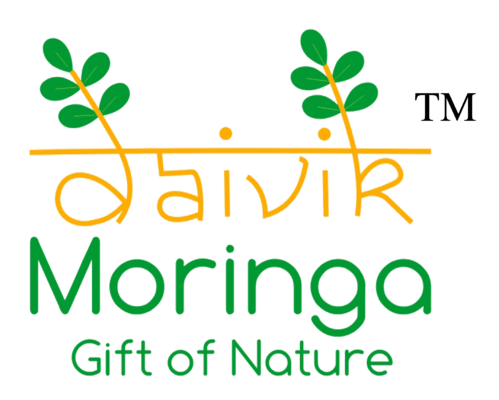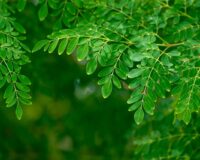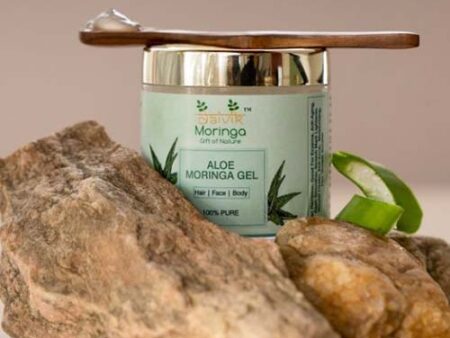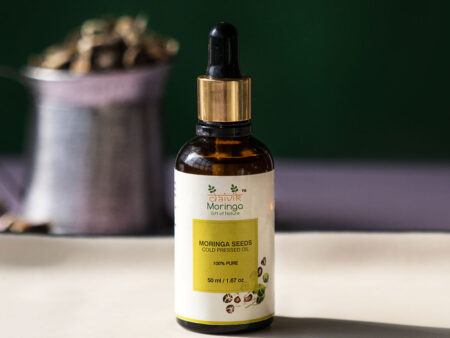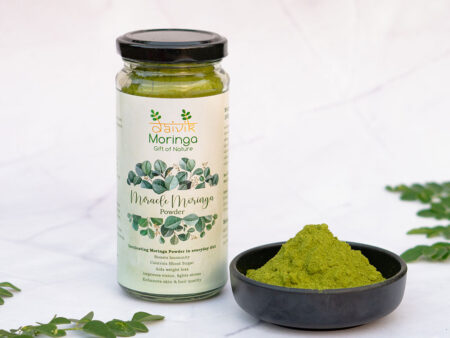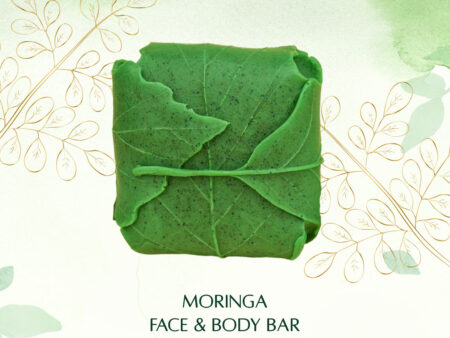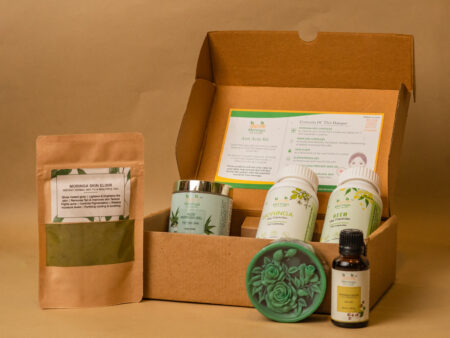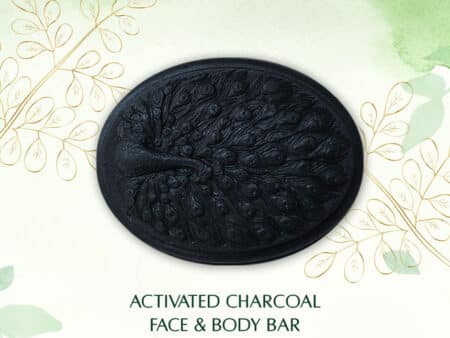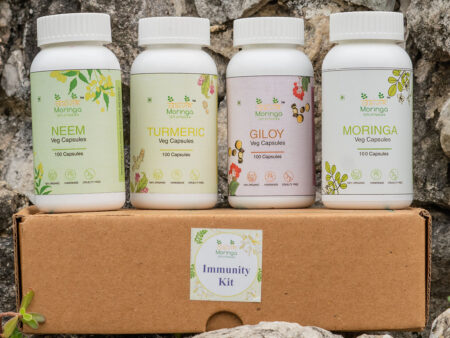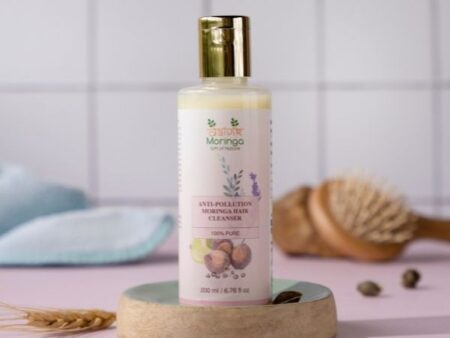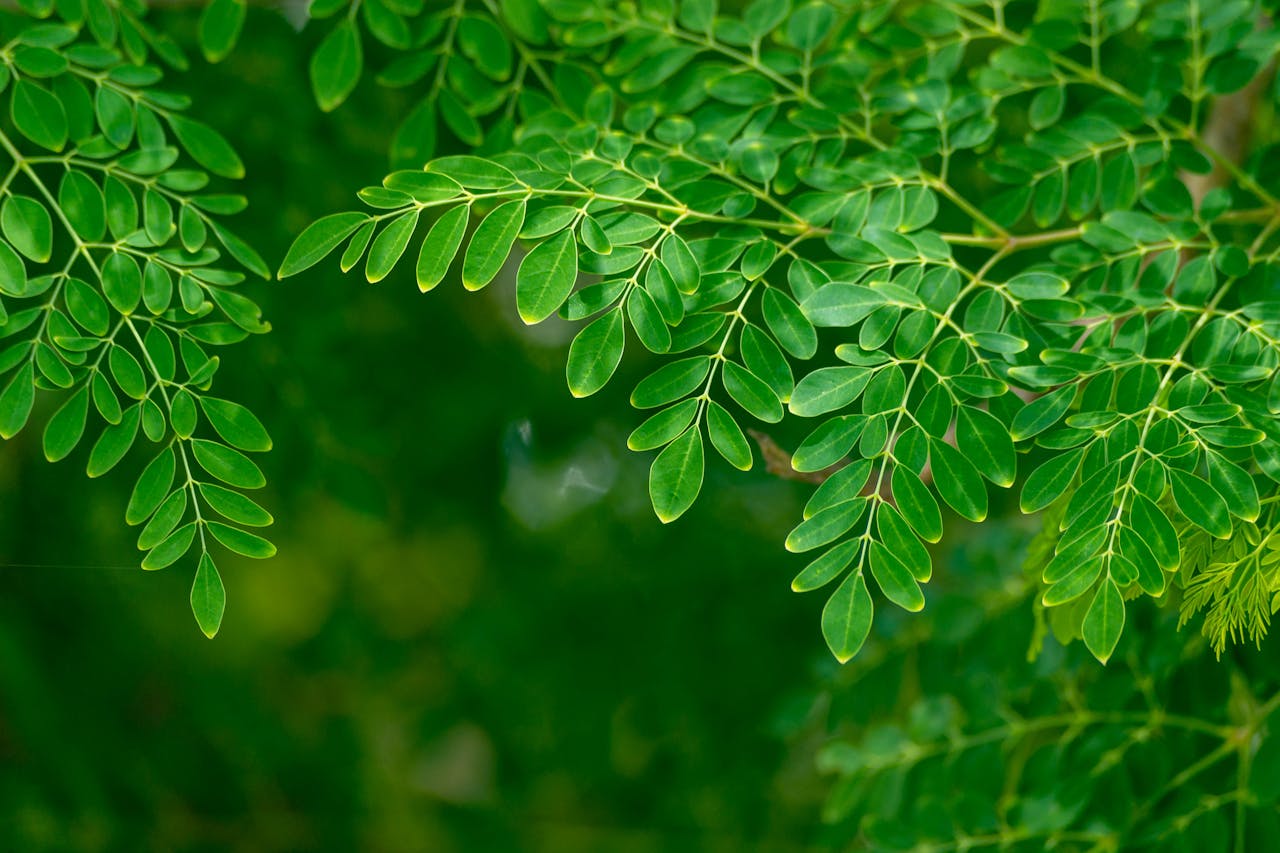
If you’ve been keeping an eye on health trends, you’ve likely heard about superfoods—those nutrient-packed ingredients touted as being the ultimate health boosters. From kale to matcha, acai to turmeric, superfoods are celebrated for their ability to improve well-being, enhance skin health, and provide a natural energy boost. But there’s one superfood that stands above the rest in terms of its versatility and potency—Moringa.
At Daivik Moringa, we’re passionate about the power of this incredible plant. Our products harness the natural goodness of Moringa, including our bestselling Miracle Moringa Powder and Moringa Kumkumadi Night Serum. In this blog, we’ll explore why Moringa stands out from the crowd and how it compares to other popular superfoods, especially when it comes to skin health and overall wellness.
What Exactly is Moringa?
Moringa, often called the “Miracle Tree,” is a plant native to parts of Africa and Asia. Every part of this tree—leaves, seeds, roots, and even bark—holds medicinal and nutritional value. It’s been used for centuries in Ayurvedic medicine and is recognized for its ability to treat more than 300 ailments. Today, Moringa is making waves in the wellness community for its dense nutritional profile and extensive range of health benefits.
Moringa leaves, in particular, are packed with antioxidants, essential vitamins, and minerals. They contain:
- Vitamin A: Essential for skin health and vision
- Vitamin C: Boosts immunity and brightens the complexion
- Calcium: Strengthens bones and teeth
- Potassium: Supports heart health and maintains electrolyte balance
- Iron: Promotes healthy blood circulation
- Amino Acids: Vital for tissue repair and muscle growth
That’s just scratching the surface! But let’s dive deeper into how Moringa compares to other well-known superfoods.
Moringa vs. Kale: Which is Better for Skin?
Kale has been a popular superfood for a while now, and it’s easy to see why. It’s rich in vitamins like A, C, and K, all of which are essential for good health. However, when it comes to skin benefits, Moringa leaves take the lead.
Kale is undoubtedly great for boosting skin health due to its antioxidant content. However, Moringa contains seven times more Vitamin C than oranges and four times more Vitamin A than carrots—both of which are vital for a glowing complexion. Vitamin C helps to produce collagen, which keeps skin firm and youthful, while Vitamin A aids in repairing damaged skin cells and combating acne.
So while kale is great, Moringa’s sheer potency in nutrients makes it the superior choice for anyone looking to improve their skin health. Plus, when you combine Moringa with other skin-loving ingredients like saffron and sandalwood, you get products like our Moringa Kumkumadi Night Serum, which offers an all-in-one solution for glowing, youthful skin.
Moringa vs. Matcha: The Ultimate Energy Booster
Matcha, a finely ground powder made from specially grown green tea leaves, is often hailed as the go-to superfood for boosting energy and improving focus. It’s rich in antioxidants, particularly EGCG, which has been linked to various health benefits, including improved metabolism and heart health. But does it outshine Moringa?
While matcha is a great source of energy due to its caffeine content, Moringa provides a natural, caffeine-free boost without the jitters. Its high levels of iron and calcium promote long-lasting energy throughout the day. The abundance of amino acids, particularly tryptophan, also helps improve mental clarity and mood. So if you’re looking for an energy boost that’s gentle on your system, Moringa is your best bet.
Moringa vs. Turmeric: Which is Better for Inflammation?
Turmeric has been used for centuries as a natural anti-inflammatory, thanks to its active compound, curcumin. It’s known for its ability to reduce joint pain, inflammation, and even help with skin conditions like acne and eczema. However, Moringa contains its own set of powerful anti-inflammatory compounds that rival turmeric’s benefits.
Studies have shown that Moringa’s leaves, seeds, and pods contain isothiocyanates, flavonoids, and phenolic acids that reduce inflammation. What sets Moringa apart is its combination of anti-inflammatory properties with its high vitamin and mineral content, making it a more well-rounded solution for inflammation.
For those dealing with inflammatory skin conditions like acne or eczema, Moringa not only reduces inflammation but also delivers antioxidants to repair and soothe the skin. Check out our Moringa Glow Gel for a powerful anti-inflammatory, skin-rejuvenating treatment that blends Moringa with Aloe and Ayurvedic herbs.
Moringa vs. Acai: Which is Better for Overall Wellness?
Acai berries are often touted as a powerhouse for overall health, packed with antioxidants, healthy fats, and fiber. They’re particularly known for their ability to improve heart health and aid in digestion. But let’s see how Moringa measures up.
Moringa doesn’t just offer antioxidants and healthy fats—it’s an all-in-one nutritional powerhouse that provides protein, vitamins, minerals, and even fiber. With more than 90 nutrients and 46 antioxidants, Moringa offers a complete profile of health benefits that include improving heart health, enhancing digestion, and boosting immunity.
Additionally, Moringa’s combination of calcium, potassium, and magnesium makes it ideal for bone health and joint support—a benefit not as prominent in Acai. You can experience these benefits with our Bone Strengthening Herbal Tea, which combines Moringa with other powerful ingredients like Hadjod and Dandelion for maximum bone and joint support.
Why Moringa is the Best for Skin Health
Now that we’ve compared Moringa to some of the other top superfoods, let’s circle back to why Moringa is unparalleled for skin health.
- Rich in Antioxidants: Moringa is loaded with antioxidants like quercetin and chlorogenic acid, which help combat free radicals, reduce oxidative stress, and delay the signs of ageing. These antioxidants are vital for keeping skin youthful and glowing.
- Hydration and Moisturization: Moringa’s high vitamin content helps lock in moisture, making it ideal for those with dry or flaky skin. The oleic acid in Moringa oil deeply nourishes the skin, leaving it soft and smooth. Products like our Aloe Moringa Glow Gel are perfect for keeping skin hydrated and radiant.
- Acne-Fighting Properties: The antibacterial properties of Moringa help reduce acne and prevent future breakouts. Its natural compounds work to soothe inflammation and redness, making it a fantastic solution for sensitive or acne-prone skin.
- Even Skin Tone: Moringa helps lighten dark spots, pigmentation, and scars. When used consistently, it can promote a more even skin tone and reduce the appearance of blemishes, thanks to its high content of vitamin E and C.
Anti-Aging Benefits: With its ability to promote collagen production, reduce fine lines, and keep the skin firm, Moringa is a natural anti-aging powerhouse. Regular use of products like our Moringa Kumkumadi Night Serum can lead to visibly younger, healthier-looking skin.
Final Thoughts: Moringa is Truly the Best for Skin Health and Wellness
When comparing Moringa to other superfoods, it’s clear that Moringa is the most versatile and powerful option for promoting both skin health and overall wellness. Its combination of antioxidants, vitamins, and minerals, alongside its anti-inflammatory and hydrating properties, make it unbeatable in the world of superfoods.
If you’re looking to elevate your skincare routine and enhance your overall health, consider incorporating Moringa into your daily life. From Miracle Moringa Powder to Moringa Kumkumadi Night Serum, Daivik Moringa offers a range of products designed to deliver the full spectrum of Moringa’s benefits.
Your skin—and your body—will thank you for it!
